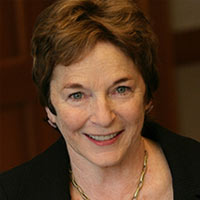

Frances Mayes
The Friends of the Washington County Public Library celebrate the beginning of the annual Sunday with Friends literary series.
The first speaker in the series is Joe Tennis, Feb. 3. All talks are held at the Washington County Public Library, Abingdon, Virginia, at 3 p.m.
Tennis is a feature writer for the Bristol Herald Courier and the author of eight books about the history and culture of Virginia. “Swamped!†is his second novel and captures his memories of growing up in Virginia Beach. It follows four teenagers as they explore the saltwater swamps of coastal Virginia and then have to find their way out after breaking an oar on their rowboat. It is a comic adventure and a coming-of-age story. Tennis’s other books include “Along Virginia’s Route 58: True Tales from Beach to Bluegrass,†“Virginia Rail Trails: Crossing the Commonwealth,†“Southwest Virginia Crossroads†and “Haunts of Virginia’s Blue Ridge Highlands.â€
Bill Sizemore speaks Feb. 17. He is the author of “Uncle George & Me: Two Southern Families Confront a Shared Legacy of Slavery.†The book tells the story of his slave-owning Virginia ancestors, their slaves and those slaves’ descendants. Its thread runs through the Civil War, Reconstruction, the Jim Crow era, the Great Migration and the struggle for civil rights. Retired from the Virginian-Pilot newspaper in Norfolk, where he was nominated for a Pulitzer Prize in 2007, he has written about topics as varied as state government and politics, the private military contractor Blackwater, the televangelist Pat Robertson and Virginia’s prison-building boom.
Mark Powell is featured Feb. 24. Powell is one of the finest of young Appalachian writers. His work includes “Prodigals,†“Blood Kin,†“The Dark Corner,†“The Sheltering†and “Small Treasons.†He has received fellowships from the National Endowment for the Arts, Breadloaf Writers’ Conference, Sewanee Writers’ Conference and in 2014 was a Fulbright Fellow to Slovakia. In 2009 he received the Chaffin Award for contributions to Appalachian literature. He holds degrees from Yale Divinity School, the University of South Carolina and the Citadel. He teaches creative writing and contemporary fiction at Appalachian State University in Boone, North Carolina.
Robert Gipe speaks March 10. He is celebrating the publication of “Weedeater: An Illustrated Novel,†a sequel to his celebrated first novel “Trampoline.†Set in contemporary eastern Kentucky, it returns to the character Dawn Jewell, the center of her family, who is searching for lost family members, her lost youth, her lost community and her lost heart in the most turbulent and deadly phase of the community’s battle with opioid abuse. Gipe, who is a native of Kingsport, Tennessee, is the director of the Appalachian Program at Southeast Community and Technical College in Cumberland, Kentucky, where he is involved with an oral history-based theater project called “Higher Ground.â€
Frances Mayes speaks March 31. Mayes is the international best-selling author of a trilogy of memoirs about moving to Tuscany and restoring an old villa, Bramasole: “Under the Tuscan Sun,†“Bella Tuscany†and “Every Day in Tuscany.†Her new book, “See You in the Piazza,†is a travel narrative that crisscrosses Italy, discovering the hidden secrets, the enchantment of the backstreets, and the hubbub of the markets where tourists rarely go. An additional pleasure is finding inventive new recipes that celebrate Italian cuisine. In recent years Mayes has published a novel “Swan,†a mystery and family saga set in south Georgia, and “Under Magnolia: A Southern Memoir.â€
Hal Crowther speaks April 7. A celebrated essayist, his new book “Freedom Fighters and Hell Raisers†is a collection of profiles of some of the best and brightest of a recently departed generation of Southerners. “I don’t have children, so I’ve decided to claim all the future freedom-fighters and hell-raisers as my kin,†wrote Molly Ivins, one of the hell raisers profiled in this collection, along with James Dickey, John Hope Franklin, Doc Watson, Judy Bonds and others. Crowther’s social and political commentary is published in national and regional outlets, from Time to the Atlanta Constitution, to the Oxford American. He is the husband of the beloved Appalachian writer, Lee Smith, and they live in Hillsborough, North Carolina.
Edison Jennings and Regional Poets speak April 28. Meet Abingdon poet Edison Jennings and other poets from the Appalachian Center for Poets and Writers in this annual celebration of regional poetry during National Poetry Month. Jennings is the author of three chapbooks: “Reckoning,†“A Letter to Greta†and “Small Measures.†His poems have appeared in a variety of journals and anthologies, including “Boulevard,†“Kenyon Review,†“Poetry Daily†and “Tri-Quarterly.†For many years he taught creative writing and literature at Virginia Intermont College in Bristol, Virginia.
Elizabeth Catte appears May 19. Catte has written the most talked-about book in Appalachian studies this year: “What You Are Getting Wrong About Appalachia.†Her book is an insider’s frank assessment of America’s recent fascination with Appalachia (especially from “Hillbilly Elegyâ€) which sees the area as a backwards, white working-class caricature. She has written an essential guide on how to talk about race, class, gender and the cultural geographies that shape Appalachian lives. She recently published, as a co-editor, “55 Strong: Inside the West Virginia Teachers’ Strike†and is completing a new book, “Pure America,†about the legacy of Virginia’s eugenics movement.
The Friends of the Washington County Public Library sponsor the “Sunday with Friends†literary series. All events are free and open to the public. They include receptions, book sales and signings. For more information, call 276-676-6298 or visit www.wcpl.net.